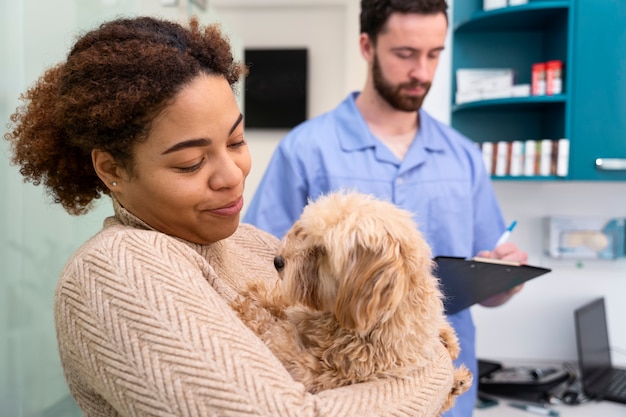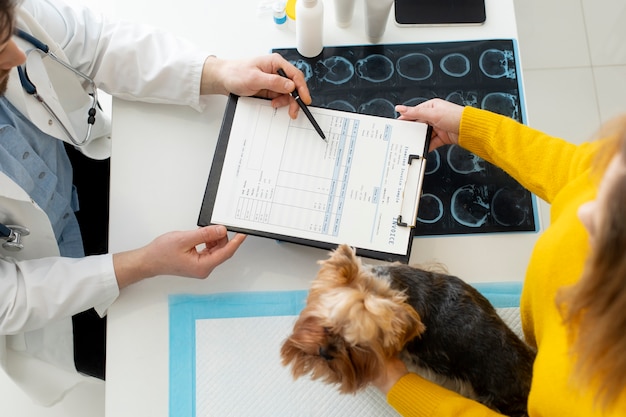Identifying Digestive Issues in Exotic Pets: Signs and Solutions


Identifying Digestive Issues in Exotic Pets: Signs and Solutions
As a dedicated exotic animal owner in Flemington and surrounding communities, you know just how unique your pet’s healthcare needs can be. Digestive issues in exotic pets such as rabbits, guinea pigs, reptiles, birds, and small mammals can be subtle and challenging to detect. Early recognition is essential, as these problems can escalate quickly, especially in species that instinctively hide illness. At Clover Hill Animal Hospital, located at 240 US 202, Flemington, NJ 08822, our compassionate veterinary team is committed to helping you identify the early warning signs of digestive trouble and guiding you through the next steps. In this guide, you’ll learn how to spot symptoms, understand what causes these issues, explore treatment options, and know when to schedule an appointment with an exotic animal veterinarian.
Digestive health is vital for your exotic pet’s well-being, and knowing when to seek quality vet care in Flemington can make a significant difference. We’ll also discuss how our wellness care services help prevent digestive problems before they start, and why regular checkups are especially important for exotic species. Let’s get started on giving your unique companion the best possible care.
Recognizing Digestive Issues in Exotic Pets
Digestive issues in exotic pets can present in a variety of ways, depending on the species and the underlying problem. Because exotic animals often mask their symptoms, it’s important to be vigilant and look for even subtle changes. Key symptoms include a decreased appetite, which may look like your rabbit or guinea pig leaving behind their favorite foods, or your reptile refusing insects or greens. Abnormal droppings are another major clue; diarrhea, reduced stool output, or droppings that look different in color or consistency should raise concern.
Other warning signs to watch for are signs of discomfort, such as a hunched posture, reluctance to move, or vocalizing when touched. You may also notice your bird fluffing up and spending more time resting, or a small mammal hiding more than usual. Bloating, visible abdominal swelling, or straining to pass stool are additional symptoms that require attention. In reptiles, regurgitation or difficulty shedding may be linked to digestive disturbances. If you observe any of these signs, even if they seem minor, it is important to monitor your pet closely and consider reaching out for a wellness examination.
Understanding the Causes of Digestive Issues in Exotic Animals
There are many reasons why digestive issues in exotic pets can develop. Diet is often a primary factor; many exotic species have very specific nutritional needs and are sensitive to changes in their food. For example, rabbits and guinea pigs require high-fiber diets with plenty of hay, while reptiles need carefully balanced calcium and vitamin D3 levels. Feeding the wrong type of food, sudden changes in diet, or offering treats high in sugar or fat can upset the digestive system.
Other contributing factors include environmental stress, such as changes in habitat, introduction of new pets, or loud noises. Inadequate humidity or temperature for reptiles and birds can disrupt normal digestion. Underlying illnesses, including infections, parasites, dental problems, or obstructions, may also lead to digestive symptoms. Sometimes, even routine medications or treatments, if not properly dosed for the specific species, can trigger gastrointestinal upset. Understanding your pet’s unique requirements and maintaining consistency in their care is essential for preventing these problems from arising.
Treatment and Management from Your Exotic Animal Veterinarian
When digestive issues arise, prompt diagnosis and targeted treatment are key. At Clover Hill Animal Hospital, our team of veterinarians takes a comprehensive approach to managing digestive problems in exotic pets. The process typically begins with a thorough physical exam and a detailed discussion of your pet’s diet, environment, and recent changes. Our diagnostic capabilities, including digital radiology, laboratory testing, and even ultrasound when needed, allow us to identify underlying causes such as blockages, infections, or metabolic imbalances.
Treatment approaches involve supportive care, such as fluid therapy and nutritional support, which are especially important for small mammals and birds that become dehydrated quickly. Medications may be prescribed to address infections, reduce inflammation, or restore normal gastrointestinal motility. In some cases, surgical intervention may be necessary, for example, if a foreign body is present or a severe obstruction is diagnosed. Our internal surgery services offer advanced care for complex cases, ensuring your pet receives the specialized attention they need.
For pets with chronic or recurrent digestive problems, ongoing management may include tailored dietary plans, regular check-ins, and monitoring of weight and stool quality. We work closely with you to develop strategies that fit your pet’s species and lifestyle, helping to reduce the risk of future flare-ups.
Preventing Digestive Problems and Supporting Home Care
Prevention is always preferable to treatment, especially for delicate exotic species. Steps you can take at home include providing a species-appropriate diet, avoiding sudden changes in food, and ensuring fresh water is always available. For rabbits and guinea pigs, unlimited access to high-quality hay is crucial, while reptiles require careful attention to the balance of protein, vegetables, and supplements, along with appropriate UV lighting and habitat conditions.
Monitor your pet’s appetite, activity level, and droppings daily, as even small changes can signal the start of a digestive issue. Minimize stress by keeping your pet’s environment stable, introducing new pets or changes gradually, and handling them gently. Regular wellness checkups with an exotic animal veterinarian are essential for early detection of subtle health changes; our wellness care routines are designed to catch problems before they become serious.
If your exotic pet has a history of digestive problems, your veterinary team may recommend periodic fecal analysis, blood work, or imaging to monitor ongoing health. Education is also key; staying informed about your pet’s needs and behaviors will help you provide the best possible care.
When to Seek Veterinary Care for Digestive Issues
Knowing when to schedule an appointment with your exotic animal veterinarian is critical. If your pet stops eating or drinking for more than 12-24 hours, shows signs of pain or distress, develops diarrhea or abnormal droppings, or displays any sudden behavioral changes, it is time to reach out. Rapid weight loss, persistent vomiting or regurgitation, bloating, or straining to pass stool are all indications that immediate veterinary evaluation is necessary.
Emergency symptoms, such as collapse, severe lethargy, or signs of respiratory distress, require urgent attention. In these cases, contact Clover Hill Animal Hospital as soon as possible; our veterinary professionals are equipped to provide supportive care and advanced diagnostics for exotic pets in Flemington. Remember, the earlier a digestive problem is addressed, the better the chances for a full recovery.
Scheduling a regular wellness checkup, even if no symptoms are present, is one of the best ways to keep your exotic pet healthy. Our convenient appointment system makes it easy to ensure your companion receives timely, proactive care.
Caring for Exotic Pets in Flemington and Surrounding Communities
Digestive issues in exotic pets can be complex, but with early recognition and expert care, many problems can be resolved or managed effectively. By staying alert to changes in appetite, droppings, and behavior, and by scheduling regular wellness visits, you are giving your pet the best chance for a happy, healthy life. At Clover Hill Animal Hospital, our team of veterinarians is always here to support you, whether you need routine advice or advanced medical intervention.
If you are searching for a "vet near me" who truly understands the needs of exotic pets, we invite you to contact Clover Hill Animal Hospital at (908) 806-4525 or visit us at 240 US 202, Flemington, NJ 08822. Our wellness care services in Flemington and internal surgery expertise are available to help your pet thrive. Schedule an appointment today and experience comprehensive, compassionate care from the best veterinarian near you.
This blog is intended for informational purposes only and does not replace professional veterinary advice. Always consult your veterinarian for guidance specific to your pet’s health needs. For more information on exotic pet care, visit reputable sources such as the Association of Exotic Mammal Veterinarians, Association of Avian Veterinarians, or the Association of Reptile and Amphibian Veterinarians.



















